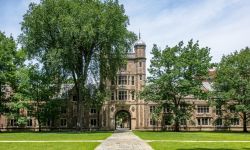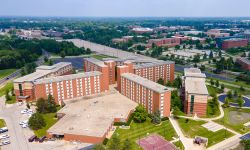Unlocking the secrets of Michigan’s ‘superagers,’ who defy golden years

- Superagers are people, usually 80 and older, whose thinking and memory are as sharp as those who are decades younger
- Michigan is growing older, faster than most other states
- Superagers do more than inspire. They can offer insight to policy decisions and individual choices for healthier aging
ANN ARBOR — In brain scans and blood draws at the University of Michigan, researchers are chasing down clues to so-called “superaging” — the ability of some older people to remain as sharp and active as counterparts decades younger.
Is the brain of the superager somehow wired differently, allowing them to slow down the aging process? Or does a superager’s choices — such as their diet or their intention to stay connected and keep learning — protect their brain?
“It might be a bit of both,” said Amanda Maher, a neuropsychologist at the University of Michigan. She leads the Michigan portion of a multi-state study on superagers.
U-M is one of five North American sites participating in the SuperAger Research Initiative, which began in 2021 and grew out of studies that started at Northwestern University in 1987.
The study has enrolled 50 participants in Michigan and is recruiting more. Researchers hope to unlock secrets to longer, better lives and better understand the biological, genetic and psychosocial factors that help some age while remaining mentally astute.
Participants are studied through questionnaires, blood tests and MRI scans to help determine why so many remain “super sharp.” The results ultimately may guide understanding, care, prevention and treatment in areas like dementia.
In late-in-life careers and card games, in crosswords and caregiving, and community activism and artwork — superagers show that cognitive decline isn’t inevitable for everyone and that many remain “super sharp.”
Some themes have already emerged from the work. Chief among them: Superagers stay engaged and they keep moving — so much so that it’s often difficult to schedule appointments with study participants.
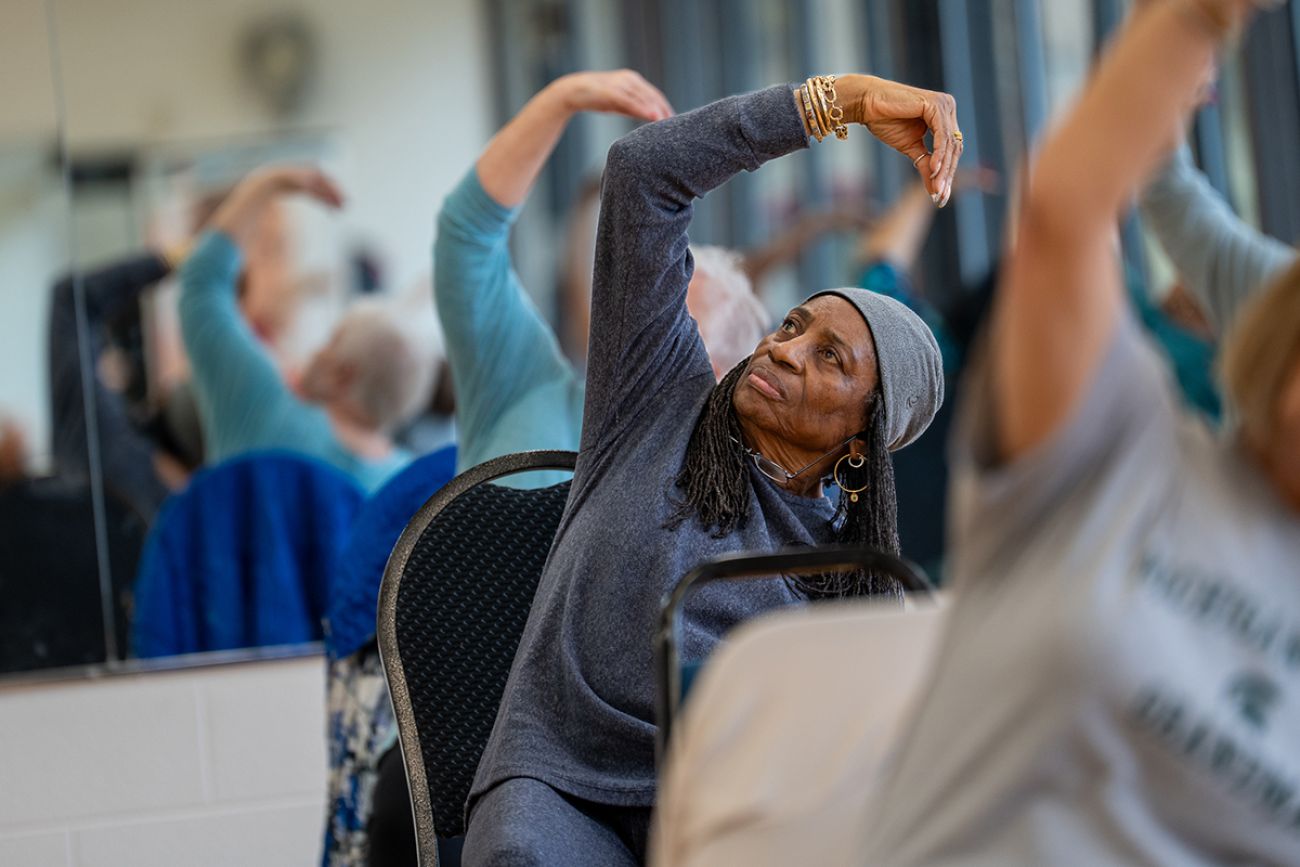
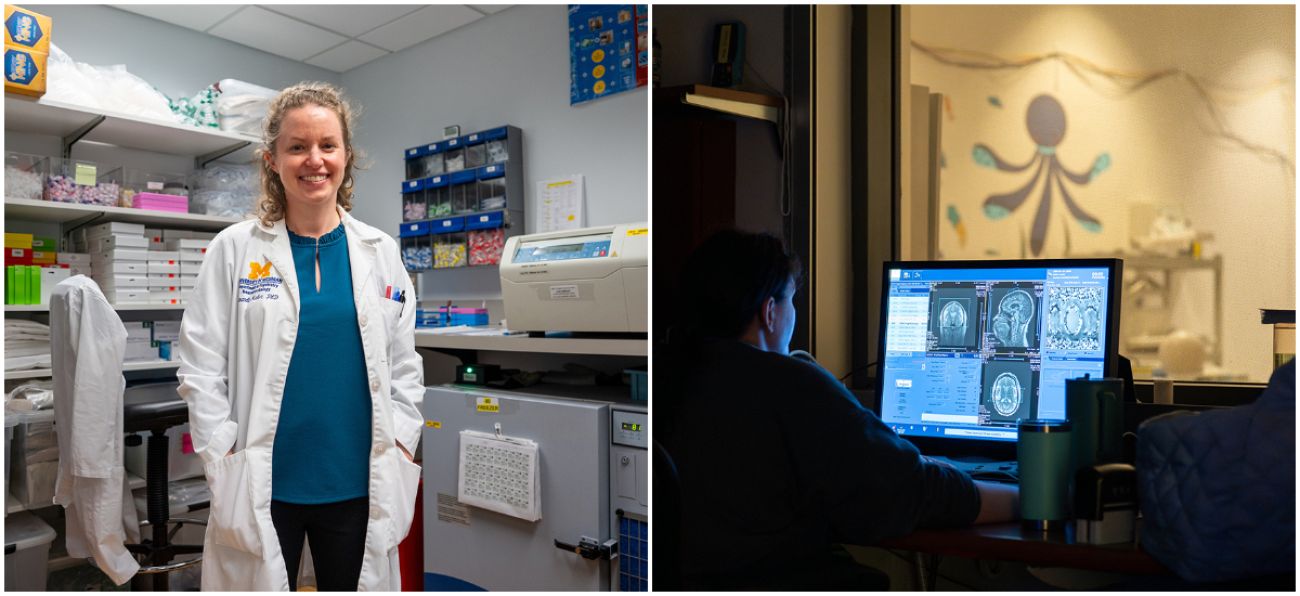
“Their calendars are so jam-packed that we have to call them months in advance to find a couple of times for them to come in to see us. They’re volunteering. They've got a bridge club,” Maher said.
The study might have another benefit for Michigan, a state aging faster than most others, with 1.9 million residents — nearly 1 in 5 — already 65 and older.
Superagers also might offer insights into how state and local governments and agencies can best support aging residents. If social connections are important, for example, how does the state fund senior centers as hubs of activity or transportation for those who no longer drive?
Certainly, each passing year continues to exact its toll, even as the brain remains sharp. But the superagers fight against the inertia that can set in with aches and pains.
“It’s day by day if I get out of bed,” said volleyball trailblazer Sandy Vong, with a laugh. “Things hurt.”
The snow sliced through the early evening outside recently, but Vong was on his regular seat inside U-M’s Cliff Keen Arena — where the squeak of sneakers on the court floor and the yells of women echoed off the walls.
Vong founded the university’s volleyball program and coached its women’s team to a Big Ten championship in 1981. He was playing competitive volleyball himself until a decade ago. A few years back, the former Ford engineer invented a portable scoreboard now used by teams across the country.
Vong remains a constant at every practice like this one. And this day, the women have adorned his seat with U-M blue and yellow balloons for his 96th birthday.
“You just never stop moving — you can’t,” he said, his eyes tracing each split-second serve-set-and-return of each volley and his Hokas occasionally nudging a stray volleyball back to the players.
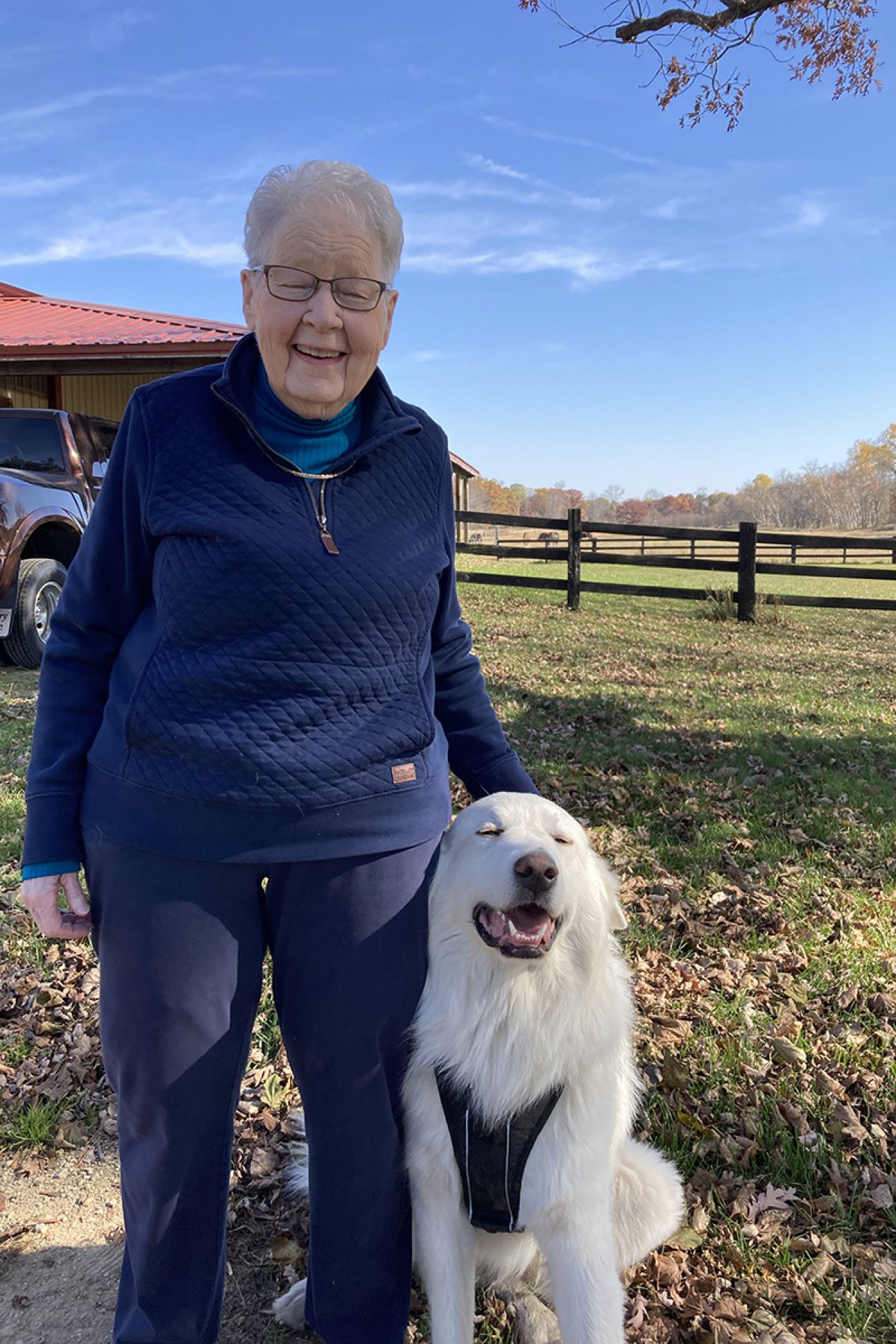
Linda Delene agreed.
At 86, the Monroe woman — also a superagers study participant — has had surgeries on her heart and brain. Her gall bladder has been removed.
Related:
- What a peek into 150 Michigan bank accounts reveals about memory loss
- Worn-out caregiver? Not alone. 1 in 3 Michigan women aged 50+ care for others
- 1 in 4 older Michiganders lack enough friends. That’s a health concern
But a stationary bike three to five times a week challenges her body. Mysteries in books and on TV, a long list of news sources and a circle of friends hone her mind, she said.
“People don’t pick what’s wrong with them,” she said, “but they pick their attitude about what’s wrong with them.”
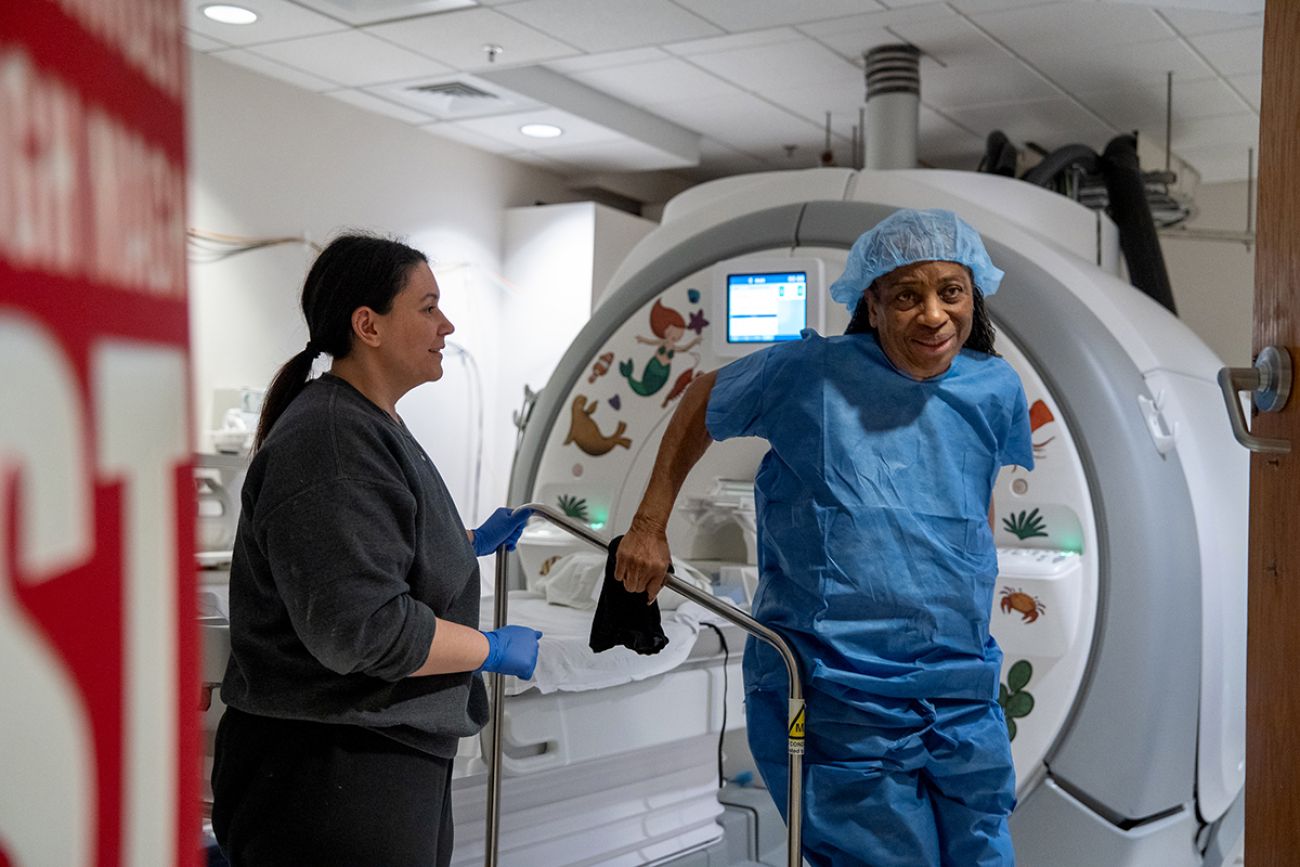
In Ann Arbor, Maher’s work is focused on thinking and memory. On the clinical side, Maher sees patients who have had strokes or may be in the early stages of dementia.
But as part of a SuperAging Research Initiative, “we focus on what’s going right in the brain.”
Another theme has emerged from the study participants: relationships matter, she said.
Those with the sharpest memories report “more warm, trusting relationships with others. So they were feeling that higher quality of relationship.”
Bill Self and his friends are evidence of that.
At the Clinton Township Senior Center, Self, 82, isn’t part of the study, but he hits a half-dozen or so exercise machines each week. He stays in shape, he said, to avoid another open heart surgery.
Just as importantly, he’s part of a small group of longtime friends who pull up chairs at kitchen tables every other Saturday — they rotate homes — for euchre, canasta, and other card games. They range in age from 79-year-old Lori Self, Bill’s wife, to 90-year-old Shirley Grenat. Laughter is as plentiful as the carrots, crackers and meatballs.
Self said he doesn’t know any secrets to superaging, but of this he is sure: “People who grow disconnected and withdraw into a shell don’t last long,” he said.
There’s a long way to go, and the study, which is funded, in part, by the National Institute on Aging as well as foundations and fundraising, is still recruiting volunteers.
Part of the research means looking into the brains of superagers. MRI scans show that a superager’s brain literally ages differently.
The outside covering of the brain — the cortex made up of the billions of nerve cells that process and send information for higher-level processes such as language, memory, reasoning, decision-making and personality — appears thicker in a superager brain. There’s also a greater density of specialized neurons that support social and emotional functioning. Superagers also have a thicker anterior cingulate cortex, a sort of central processor that’s key in motivation, decision-making, and learning.
And there’s this: While aging shrinks the brain, a superagers’ brain doesn’t shrink as fast.
Maher said brain games might help — crossword puzzles, if that’s your thing, or sudoku. And get creative: Find ways to both connect with others and use the brain.
Rather than passively watching a movie, discuss it afterwards with a friend or family member, Maher suggested.
Superagers, Maher said, “are just showing how remarkable the brain is and how good things can be,” she said. “It doesn't have to be this dismal outlook of ‘Oh goodness, you're getting older and your memory is just going to become bad.’”
Rather, she said: “It’s showing and celebrating what's going right in the brain. And it sure seems to be inspiring hope in a lot of people.”
About the project
The University of Michigan is a host site for the multistate SuperAging Research Initiative, based at the University of Chicago. The program is looking for volunteers in Illinois, Wisconsin, Michigan and Georgia and in southwest Ontario. Participants must be 80 years or older with a good memory and able to undergo an MRI brain scan. Participants will undergo six to 10 hours of study — broken into two or three visits every two years — that include memory and thinking tests, brain scans, questionnaires, and blood collection. They will receive at least $100 for their time, as well as mileage reimbursement. For more information about participating in Michigan, call 734-764-6157 or email [email protected].
See what new members are saying about why they donated to Bridge Michigan:
- “In order for this information to be accurate and unbiased it must be underwritten by its readers, not by special interests.” - Larry S.
- “Not many other media sources report on the topics Bridge does.” - Susan B.
- “Your journalism is outstanding and rare these days.” - Mark S.
If you want to ensure the future of nonpartisan, nonprofit Michigan journalism, please become a member today. You, too, will be asked why you donated and maybe we'll feature your quote next time!


